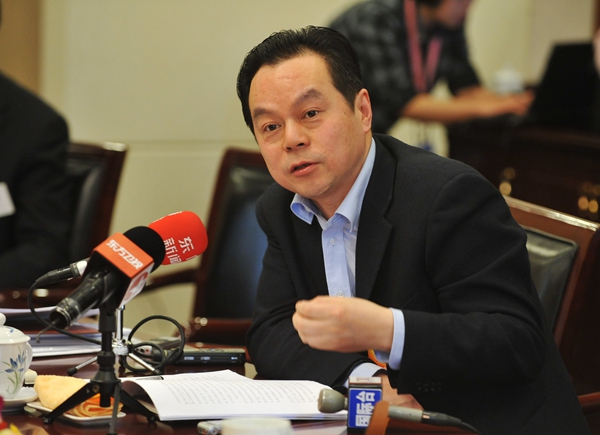NPC deputy calls for greater collaboration in cosmetics industry
- By Zhang Liying
 0 Comment(s)
0 Comment(s) Print
Print E-mail China.org.cn, March 11, 2022
E-mail China.org.cn, March 11, 2022
A deputy to the 13th National People's Congress (NPC) proposed building a collaborative innovation mechanism for China's cosmetics industry so that companies, universities and research institutes can work together to make technological breakthroughs.

Zhang Zhao'an, deputy head of the Shanghai Academy of Social Sciences, said the cosmetics industry has been developing rapidly in China as people pay more and more attention to their own image.
He said China has become the world's second largest cosmetics consumer market behind only the United States, with a compound annual growth rate of 9.7% from 2010 to 2020. Meanwhile, the sector is expected to maintain a compound annual growth rate of 11% during the 14th Five-Year Plan period (2021-2025).
However, Zhang pointed out that the cosmetics industry in China still faces some underlying problems such as a lack of key technologies and high-end brands.
For example, during the past seven years, only two Chinese researchers have won the Maison G de Navarre Young Scientist Prize among the several awards sponsored by the International Federation of Societies of Cosmetic Chemists, he explained.
In addition, only three Chinese brands — Pechoin, Rejoice and Chando — were among the top 50 most valuable cosmetics companies in 2021, according to a report by leading independent brand consultancy Brand Finance.
Therefore, Zhang called for cutting-edge cosmetics technologies to be included into national science and technology research programs and additional support for basic research in botany, organic chemistry, dermatology, and other related fields.
With facilities and financial support from the government, China's cosmetics companies need to jointly establish a collaborative mechanism to integrate resources, pool wisdom and facilitate innovation, he said, adding that the Oriental Beauty Valley in Shanghai can provide a basis for such a mechanism.
"The Oriental Beauty Valley, which is China's largest cosmetics and health industrial hub, is promoting the integration and innovation of biotechnology and cosmetics technology as well as building a full-link service platform covering basic application fields such as raw material R&D and efficacy evaluation," Zhang said. "For those reasons, I suggest that the valley serve as a pilot district for conducting industry-wide technological innovation."
Almost 4,000 brands from both home and abroad are based in the valley, generating a total output value of 70 billion yuan, with this figure expected to exceed 100 billion yuan by the end of 2023.
Zhang also suggested developing a "China Cosmetics Industry Index" and "China Cosmetics Innovation Award" on the basis of the annual Oriental Beauty Valley International Cosmetics Conference to reflect the progress in cosmetics innovation and help leading brands increase their influence.






Go to Forum >>0 Comment(s)